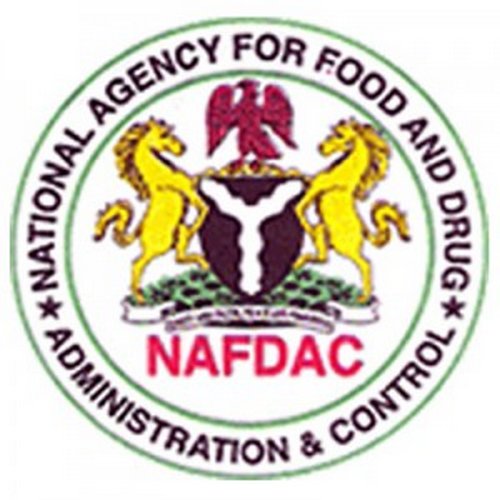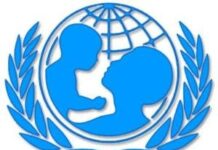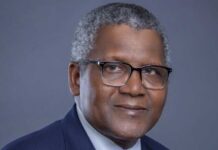CHIGOZIE AMADI
The Director General of the National Agency for Food and Drug Administration and Control (NAFDAC), Prof Mojisola Adeyeye, has described the Executive Order just signed into law by President Bola Tinubu as a significant step towards transforming Nigeria’s health sector and one that would give local manufacturers a chance to excel and be competitive.
On Friday, the Coordinating Minister of Health and Social Welfare, Prof. Mohammed Ali Pate, announced the signing of the Executive Order in a statement titled: ‘Revitalising Nigeria’s Healthcare: President Tinubu’s Bold New Executive Order’.
Pate, who announced in a post on his X handle, said the Executive Order, which is part of the Nigeria Health Sector Renewal Investment Initiative II, NHSRII, is aimed at addressing longstanding challenges within the nation’s health sector and aims to improve health outcomes for Nigerians.
Hailing the development in a reaction yesterday, Adeyeye said the President’s Executive Order aligns with the broader objectives of the National Health Strategic Reform Plan II, NHSRII, and the Presidential Initiative on Healthcare Value Chain (PVAC), approved in October 2023.
Adeyeye said by granting waivers in critical areas of healthcare and its delivery, the Tinubu administration had displayed a commitment to the transformation of the nation’s healthcare sector, increasing local production of healthcare products, equipment, and consumables at reduced costs, and promoting local investments.
“The President’s EO underscores his administration’s commitment to transforming Nigeria’s health sector. It aligns with the broader objectives of the NHSRII and the Presidential Initiative on Healthcare Value Chain (PVAC), approved in October 2023. This EO sets the stage for a sustainable and high-quality healthcare system for all Nigerians by addressing core challenges and providing a clear path for improvement.
“The perennial and persistent costly challenge of importation of all materials needed for manufacturing (except water) by local manufacturers became an open sore. As Director General, my professional heart ached for local manufacturers considering the import duties they have to pay for all materials, some packaging materials and equipment,” Adeyeye said.
According to the D-G, since taking office, she has pushed for zero tariffs on medical supplies, including a short grace period to allow domestic manufacturers to catch their breath and focus on their core strength – producing high-quality medical products.
“Then came the Tinubu Administration, and then the administration of the cerebral Coordinating Minister of Health and Social Welfare, Prof Mohammed Ali Pate, and Coordinating Minister of State for Health and Social Welfare, Dr. Tunji Alausa, who put the interest of the 200 million plus Nigerians before their interest. Then the unimaginable started happening—giving local manufacturers a chance to excel and be competitive.”
“It aligns with the broader objectives of the NHSRII and the Presidential Initiative on Healthcare Value Chain (PVAC), approved in October 2023. By addressing core challenges and providing a clear path for improvement, this EO sets the stage for a sustainable and high-quality healthcare system for all Nigerians,” Adeyeye added.
She lauded the Coordinating Minister of Health and Social Welfare, Prof. Pate, and the Coordinating Minister of State for Health and Social Welfare, Dr. Alausa, who, according to him, “put the interest of the 200 million plus Nigerians before their own interest.”
Among its provisions, the Executive Order enables affordable healthcare through lower production costs of essential medicines, long-lasting insecticidal nets (LLINs), rapid diagnostic kits, and acquisition of Active Pharmaceutical Ingredients (APIs), excipients, other vital raw materials, and other critical healthcare supplies by eliminating tariffs, excise duties, and VAT on specific machinery, equipment, and supplies used in pharmaceutical manufacturing, The waivers and exemptions are valid for two years from the effective date.
It is expected to boost and ensure stable local manufacturing through the establishment of framework contracts and volume guarantees to create a stable market for local pharmaceutical manufacturers, A Harmonised Implementation Framework will also be developed to guide regulatory agencies like NAFDAC, SON, etc. in streamlining the approval process for medicines and medical devices. This will expedite the availability of new treatments and technologies in the country.
Among other key issues, the Executive Order aims at enhancing quality and innovation by ensuring that regulatory harmonization and market shaping drive innovation and quality improvement in the local healthcare industry. It is also expected to strengthen the nation’s health systems by addressing under-investment and regulatory challenges, improving service delivery and health outcomes, and enhancing resilience to future health crises.
























